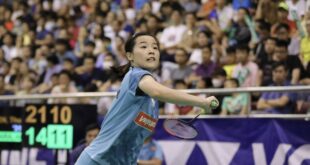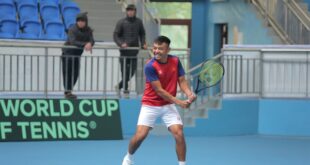Budget and expense are the main problems that prevent Vietnam from hosting tournaments rated by international chess federation FIDE, reducing the space for domestic players to develop.
According to FIDE, Vietnam had 16 standard tournaments in 2019, before the Covid-19 pandemic. This number is considered quite low compared to other countries in the region like Malaysia (143), Thailand (138) or the Philippines (76). Vietnam are only sixth in the number of FIDE-rated tournaments in Southeast Asia.
The stats do not reflect the true strength of Vietnamese chess. In the last seven Asian team championships, Vietnam finished in the top three five times. In the last three Asian individual tournaments, Vietnam also had two champions, Le Quang Liem in 2019 and Vo Thi Kim Phung in 2017. Even in youth competitions, Vietnam often enjoy top achievements. Therefore, it’s no exaggeration to say Vietnam are among the top chess countries in Asia at present.
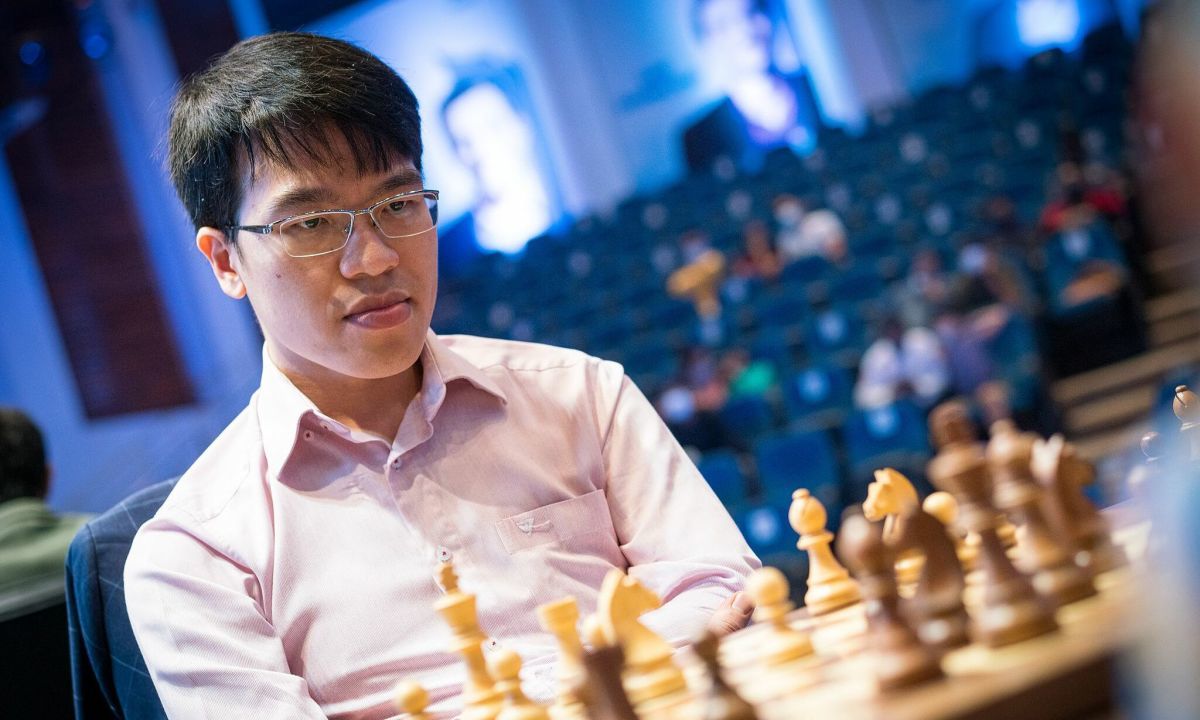 |
|
Vietnam’s top chess player Le Quang Liem at the super blitz tournament Tata Steel in India on November 18, 2021. Photo by Grand Chess Tour |
But because there are not many FIDE-rated tournaments (Elo tournaments), where players can improve their world rankings, the Elo of Vietnamese chess is lower than its true strength. This problem is even more relevant to young players, as they lack a coefficient environment to improve.
“The Elo rating of young players in Vietnam should be increased by 200 to match their true level,” chess grandmaster Bui Vinh told VnExpress.
Because Elo is considered lower than real strength, Vietnamese players are hesitant to compete with each other. If a tournament consists of all players with low Elo, the average Elo of that tournament will not be high. The two factors that lead to an increase or decrease of a player’s Elo is the Elo of their opponents and the number of points gained from that tournament. Therefore, Vietnamese won’t be able to improve their Elo if playing each other despite getting good results. They need to play bigger players in bigger tournaments to grow.
“The first thing to do is to get the Elo ratings of Vietnamese players up, to match with their true level. But this is a complicated issue and needs to be gradually enhanced,” Vinh added.
In order to do as Vinh said, there are two ways. One is getting the players to compete abroad in giant chess nations like India, Russia, the U.S. or European countries. The second option is inviting international players to Vietnam to compete with the domestic players. Both of these options however, face the same problem, which is budget.
Chess is not a sport that attracts a large number of viewers, although the number of participants is not small. FIDE estimates that there are around 300 million to 600 million regular chess players. But not every chess player enjoys watching others play, especially for strong players. A person with a low Elo rating will have a hard time understanding the game of a FIDE grandmaster. Chess is different from other popular sports like football, tennis or basketball. But this is a problem that any chess platform faces, and is even harder to attract sponsors.
FIDE super grandmaster Le Quang Liem said: “Young Vietnamese players lack an environment to compete and improve when in Vietnam, the HDBank championship is the only annual Elo tournament to include the youth.”
“This makes it much more difficult for their development and it’s even more difficult to think about winning international titles. Meanwhile, in the U.S. and Europe, there are many standard and open youth tournaments every year,” Liem continued.
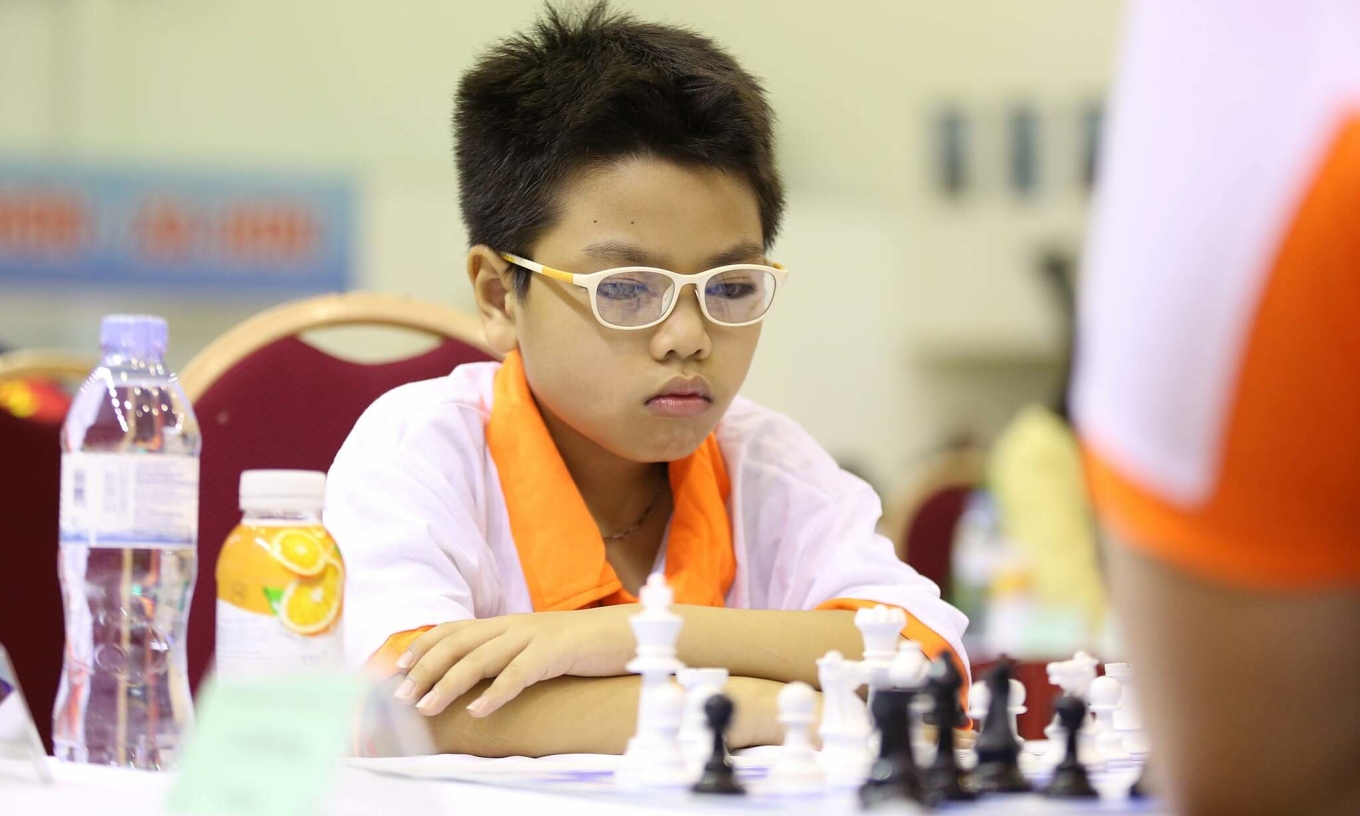 |
|
The 11-year-old Dau Duy Khuong competes at the national championship in 2020. Photo by VnExpress/Xuan Binh |
The question is why there are so few Elo tournament in Vietnam.
Elo tournaments can be divided into three groups: domestic, international and standard. In order for a country to organize such tournaments, FIDE requires the national chess federation to pay a fee. Depending on the number of players and the average Elo of the tournament, the fee will differ. But this fee is usually not high, no more than €10 ($11.06) for a player to compete. This fee also decreases as the number of participants increases.
With non-standard domestic Elo tournaments, this is often an opportunity for players to earn their first Elo coefficients. According to the rule, a player without an Elo rating needs to play at least five players with Elo ratings, and score a minimum of 0.5 points in these five games. Some chess clubs in Vietnam have organized such tournaments for young players to gather their first Elo coefficients.
For an international Elo tournament, its average Elo must also be high enough to attract foreign players. Because the Elo of Vietnamese players is lower than normal, the quality of these tournaments in the country is not high enough for foreign players to be truly interested.
Vinh has organized four international chess tournaments in Hanoi, but most participants are mostly Vietnamese and not many have Elo ratings above 2,000.
Dallas Wilson is one of the rare foreign players to attend a tournament here, but it’s because he was living in Vietnam during that time. The New Zealand player who has an Elo of 1,575 told VnExpress: “I was destroyed by some 9 or 10-year-old players in Vietnam. My Elo rating is very bad right now. Young players in Vietnam are lucky, because they are mentored by the grandmasters. Chess is very popular in Vietnam and young players are also greatly supported by the government. The New Zealand government never supports chess players, so we have to pay to compete in the tournaments ourselves.”
As Wilson said, Vietnamese chess is fortunate to have a lot of support from the government, compared to other countries. The fee for participating in Elo tournaments in Vietnam is also much lower than in other countries. For example, in the First Saturday tournament of Hungary, or the Third Saturday of Montenegro, the fee that each player must pay is usually €200 euros ($221.4) or higher, disregarding their Elo. In Vietnam, players usually don’t have to pay more than $40.
Although tournament organizers often support international players with fees, these competitions in Vietnam are still not attractive enough to convince them to participate. Foreign players still have to pay for transportation and accommodation here, if they don’t live in Vietnam. As a result, Vietnamese players still have to play each other and cannot improve their Elo ratings.
Limited budget
To host a standard Elo tournament, the biggest problem is the expense. Organizers are obliged to find sponsors. FIDE requires players from at least five countries to participate to call it a standard Elo tournament. These players also must have high Elo ratings at world-class level. At this point, the budget problem appears.
In order to invite high-class international players, organizers will have to offer them an incentive. This amount can be up to $500 or more, depending on the player’s level and Elo. In addition, organizers also need to cover a part of their travel and accommodation costs. The prize pool must also be attractive enough for them to compete. In short, it’s not easy to organize a standard Elo tournament in Vietnam without a dedicated sponsor.
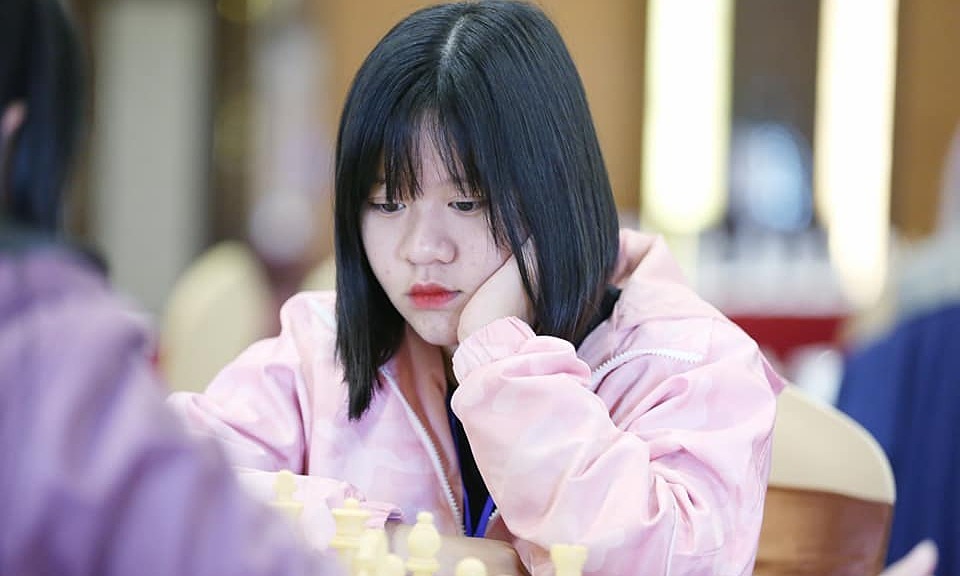 |
|
Chess master Nguyen Thien Ngan competes at the Southeast Asian Chess Championship in 2019. Photo by VnExpress/Xuan Binh |
Vietnam is also not a fertile land for international players to accumulate more Elo because the Elo of Vietnamese players is lower than their actual strength. Foreign players are more likely to lose their Elo than gain if they play in Vietnam. To take that kind of risk, they must be compensated with income. Not to mention the organizers also need to prepare equipment to host the tournament and pay referees.
Even the top players in Vietnam are not happy when competing in national Elo tournaments. The national championship that ended on March 5 was the only national Elo tournament. Many young players participating in the tournament had Elo ratings several hundred units lower than their actual strength. The average Elo of the male group was 2,005 and the female group, 1,731.
Vietnam’s number two player Nguyen Ngoc Truong Son has never won the national championship, mainly because he rarely attends it.
“Organizers should limit the number of players in the tournament,” grandmaster Vo Thi Kim Phung told VnExpress. “The national championship tournament is for everyone now, so people are not very excited about it, since winning it doesn’t mean that much.”
Vietnamese chess is falling into a loop. This problem cannot be solved in a day or two.
Nguyen Thi Anh Thu, general secretary of Vietnam Chess Federation, said: “Vietnam are planning to organize more Elo tournaments this year. Before and after SEA Games, there will be two tournaments taking place in Hanoi. The federation has also sent invitations to other countries in the region. Unfortunately, in the past two years, Covid-19 has caused many tournaments to be delayed.”
The next tournament is scheduled to take place from April 8 to 17 in Hanoi. But currently, Covid-19 in Vietnam and Hanoi has not shown any signs of abating. The current state of Vietnamese chess still has many other obstacles to overcome, besides the pandemic. But at least, chess bodies have begun seeking solutions to these issues.
- Reduce Hair Loss with PURA D’OR Gold Label Shampoo
- Castor Oil Has Made a “Huge” Difference With Hair and Brow Growth
- Excessive hair loss in men: Signs of illness that cannot be subjective
- Dịch Vụ SEO Website ở Los Angeles, CA: đưa trang web doanh nghiệp bạn lên top Google
- Nails Salon Sierra Madre
 VnExpress News The News Gateway of Vietnam
VnExpress News The News Gateway of Vietnam
